Mark Williams helped his wife through deeply traumatic postnatal depression – only to then fall victim to it himself
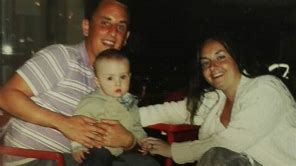
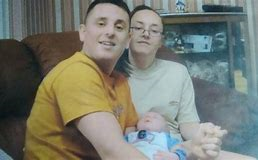
Proud Welshman Mark Williams, founder of International Father’s Mental Health Day, first experienced a panic attack when his wife Michelle had to undergo an emergency c-section.
Although he helped her through her severe postnatal depression following the birth of their son, Ethan, the experience led to his own battle with the illness.
After finally seeking treatment and recovering, Mark was motivated to set up the national charity for dads with mental health issues, Fathers Reaching Out.
He has now written a book, Daddy Blues, about his life and illness. Here, he explains what motivated him to help other dads suffering from postnatal mental health problems.
I was excited, and having got married to Michelle the previous year, I felt ready for fatherhood. I was of course anxious – I wasn’t really educated about what might or could happen. I was only told about the great things that happen when you become parents.
We have five copies of Mark’s book, Daddy Blues, to give away. To be in with a chance of winning, email nctmatterseditor@nct.org.uk with your name and address.
Even today when I talk about the experience, I feel anxiety. After thinking both my wife and baby were going to die, and after being told my loved one was going to have an emergency c-section, I had my first ever panic attack while preparing for theatre.
I felt so helpless, thinking that I should be the strong one for Michelle yet worried I was going to faint. I hated the attention on me, as it was Michelle who had been in labour for over 22 hours.
I have been honest in saying that I didn’t get the overwhelming feeling of love for my baby at the time. I was just relieved they were alive.
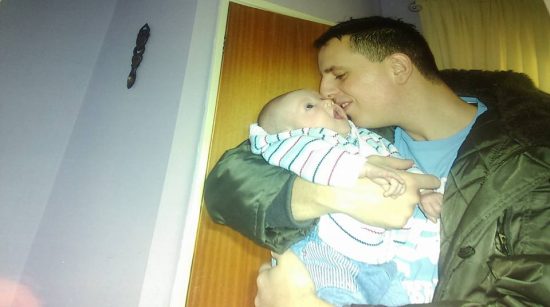
Michelle’s depression came out of the blue for us. After hardly sleeping for those weeks it was clear that something wasn’t right.
The health visitor said the words: ‘I think your wife has postnatal depression’ and my world changed overnight. I didn’t know anyone who had depression, or at least talked about it.
Seeing a wonderful person, who I loved so much and still do today, feel and become a totally different person was hard.
I was lucky in that I had a lot of family support when it hit crisis point, but I used alcohol when I started to become depressed myself. Four months after Ethan’s birth, I was getting angry and my personality totally changed.
I felt like I should be a man and ‘man up’ about everything. I didn’t know what it was then as I had never experienced deep depression. I started having negative thoughts about how I could end my life and thinking my family would be better off without me.
I never made a plan but I was so lost and lonely. I couldn’t tell Michelle as I didn’t want it to affect her mental health so I carried on hiding it every day.
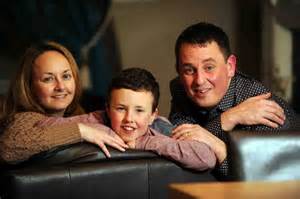
Everyone is different and the hardest part of depression is that there isn’t a time scale, but Michelle’s condition started improving between 12-18 months after Ethan’s birth.
Michelle was, and still is, an amazing mother but she lost all her confidence and was involved with community mental health teams for a while.
Sadly there weren’t any specialist perinatal mental health teams in our area – we certainly should have had a mother and baby unit back then. Michelle tried many things, and the key is finding out what works for you.
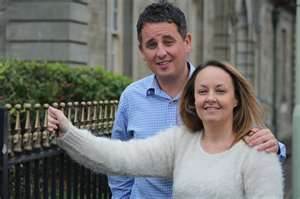
I didn’t know who to talk to and felt if I told anyone they would think I was a weak person and a bad father for thinking the way I did. After all, I was lucky to bond with my son because I was at home, and it was amazing that I was in a position to be able to co-parent.
But inside I was struggling and would isolate myself from people and drink to cope when I could get away with it. I was feeling that this was life now and felt lonely. I didn’t go to the doctors as I was afraid I wouldn’t get a job if I was diagnosed with a mental disorder.
After years of struggling, I hit crisis point and lucky for me went for help. It was the best thing I have ever done. I went into community mental health services myself, and was diagnosed with ADHD at 40, which I had self-managed all my life.
Like mothers, I now know that fathers can have a history or anxiety, depression and traumas, but sadly with no screening in place I was never asked about my mental health. I have since learned positive coping skills which I wish I had learned years before. As a ‘man’, I was totally unaware that I could talk about my feelings too.
I decided to start Fathers Reaching Out after talking to a man in the gym who experienced depression when his little girl was born. Nobody had asked him how he was coping and I thought, that can’t be right. With the biggest killer in men under 45 being suicide, that needed to change.
I was finding that fathers had suffered like me, undiagnosed with postnatal depression and birth trauma, after witnessing their loved ones in distress. Men often don’t get help after the postnatal period due to the stigma of it and trying to keep it all together.
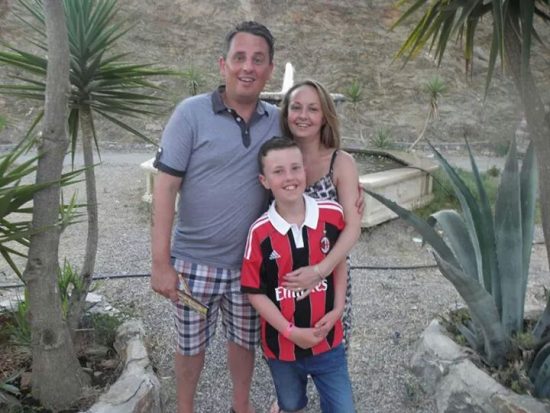
I handed Fathers Reaching Out over to a national charity, and went down the campaigning route to change guidelines and make sure all parents are supported. There is no mention of the word ‘fathers’ in CG192 Nice Guidelines, and The World Health Organisation only recognises that mothers should be screened.
Anyone can suffer from postnatal depression, regardless of gender. I have appeared on television and radio, and even spoken in parliament a few times. I will not stop until all parents are supported.
Speak to your health visitor and somebody you know. You can go to your GP and access community mental health to see what specialist perinatal mental health teams are in your area. Keep looking for help as there are so many resources out there today. Whatever you do, don’t struggle in silence like I did. The quicker you get help, the quicker the recovery really is.
Check out our advice for dads dealing with postnatal depression.
What is postnatal depression and how can it affect your relationship? Read about the illness here.